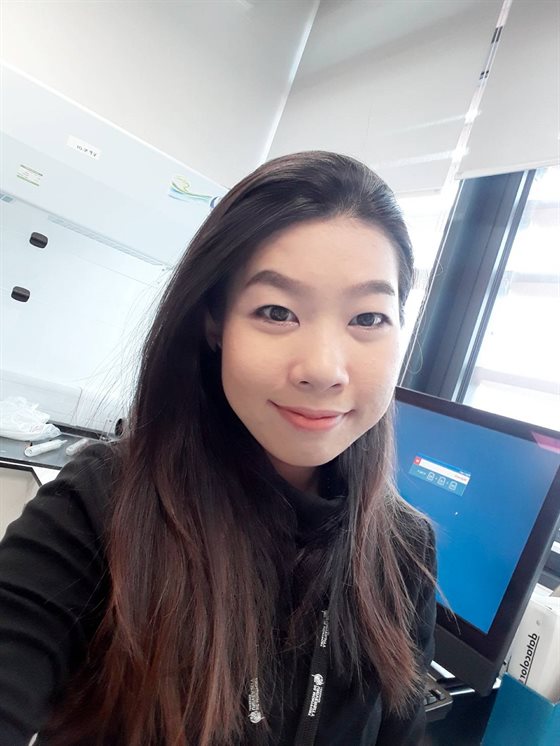
A research student from De Montfort University Leicester (DMU) has won praise for showing how fungi can be used as a natural and energy-saving way of dyeing clothes.
Nalinee Netithammakorn, a PhD Fashion and Textiles Design researcher from Thailand, found that she could use the biodegradable enzymes in natural fungi to dye clothes, avoiding the use of conventional synthetic dyes.
The dyeing process, which Nalinee has named ‘ENZCOLOUR’, uses multidisciplinary technology at a lower temperature than conventional dyes, resulting in the benefit of energy saving as well as a reduction in waste from materials and water.
In recognition of her work, Nalinee was highly commended by the Royal Society for the encouragement of Arts (RSA) in its RSA Student Design Awards.
Nalinee said: “Working on this project has led me to consider how I can contribute to circular fashion using innovative technology and creative thinking. The award from the RSA is very unexpected. When I entered, I never thought anything would come of it.
“The whole experience has shown me that my project is valuable, and it has definitely driven my passion to discover and develop further potential contributions in the future.”
Nalinee, who originally worked as a product developer and higher education instructor in fashion and textiles prior to pursing her doctoral study at DMU, was motivated by traditional dyeing methods from her home country of Thailand.
She said: “I wanted to explore sustainable alternative methods to the current traditional dyeing methods that may have a negative impact on the environment due to a contaminated effluent and high energy use.
“Harsh chemicals used in conventional dyeing processes can contribute wastewater pollution in waterways. This led to my passion to improve sustainability in textile production. I was determined in my research to improve the conventional textile processing by using innovative technology.”
Nalinee said the research was only made possible thanks to the Textile Engineering and Materials (TEAM) Research Group at DMU believing in her.
“I undertake this research at DMU under the guidance of my three supervisors: Professor Jinsong Shen, Dr Claire Lerpiniere and Dr Edward Smith.
“They generously gave me an opportunity to learn and develop in this new field even though I did not have a strong background in chemistry or biotechnology.
“I come from a fashion background, so this is all new to me, but I was determined to improve the conventional textile processing in my research. I am so grateful to DMU for this opportunity to learn more.
“I look forward to spending more time in the lab, it’s fun and I want to learn as much as possible.”
In a statement about her work, Nalinee’s supervisory team wrote: “Nalinee’s passion and hard work for developing novel approaches to sustainable coloration made this project a success
“Her work reflects the unique attributes we have within our TEAM Research Group, of world-leading researchers working on sustainable alternatives to existing technologies, coupled with our industry expertise in creative design concepts for fashion and textiles.
“We would like to congratulate her success on winning the RSA Highly Commended Award. We are incredibly proud of her achievements and look forward to the next stage of her research career.”
Posted on Wednesday 8 July 2020